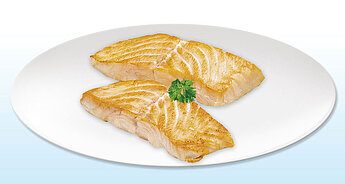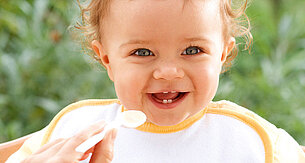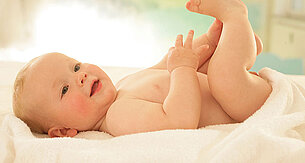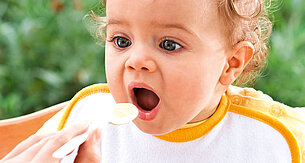Fish – also healthy for babies!

Fish is high-quality food, and part of a regular diet in most European countries, also in the nutrition of infants.
Fish should be eaten on a regular basis because it is a valuable source of nutrients. Sea fish is a significant source of the trace element iodine, which is essential for a well-functioning thyroid gland. It is also vital for babies and important for their development. Oily sea fish, such as salmon, contains many valuable Omega-3 fatty acids that are important for the development of brain and nerve cells.
Eating habits are shaped at a very early stage in life. Therefore, it is important to get babies familiar with healthy meals – and that includes fish.
HiPP offers at least one fish menu in each feeding stage. These make an important contribution to a varied diet for your child, as eating fish is recommended about once a week.
Even babies with allergy risks are allowed to eat fish when they have reached the weaning food age. This is because the recommendations regarding the composition of weaning food apply both to babies with allergy risks as to babies with no allergy risks. There are even indications that eating fish during baby’s first year could have a preventive effect on the development of allergies.
You must be asking yourself: Where does the fish for HiPP Menus come from?
Most of the fish we use comes from deep-sea fishing and the fishing grounds lie in select deep-sea regions. The fish is caught and certified according to Marine Stewardship Council (MSC) guidelines. We at HiPP can thus guarantee a careful and sustainable method of fishing, for the conservation of fish stocks and against over-fishing of the oceans.
Only if fish caught in the wild is not available in the quantity and quality, we need does HiPP fall back on products from ecological aquaculture. This fish is farmed according to strict organic guidelines.
All fish is immediately processed fresh and is deep-frozen for further processing. Before the fish makes it to the jar, it is tested thoroughly in our laboratories.



